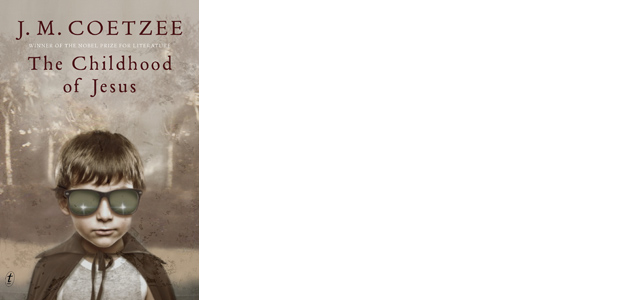J.M. Coetzee, Text Publishing
Don’t expect easy allegory here with the odd boy at the centre of this novel equating directly with Jesus.
This is not what happens.
There are, however, intriguing parallels. For example the boy, David, writes of himself — Yo soy la verdad, I am the truth. Yet David might equally be a precocious fantasist whose surrogate parents indulge him as wunderkind wrongly persecuted for his originality and resistance to rules.
The Christian narrative lurks in the book’s pages as does Cervantes’ Don Quixote (which David is reading in a child’s version).
As with Cervantes, as soon as you believe you understand his book’s deeper meanings, Coetzee interrupts this, keeping you guessing.
The boy arrives as a nameless refugee in the Spanish-speaking town of Novilla with a middle-aged man who vows to find the boy’s mother. Given the name Simón on arrival, the man has trouble adapting to Novilla, which is an eerie place where people are meant to settle “washed clean” of memories and devoid of yearning and desire.
Simón’s neighbour, Elena, says that instead of looking to be “transfigured” Simón should become like a child again; alive to the moment, not hampered by history.
The stevedores Simón works with also urge him to appreciate life and work — both of which they philosophise about but don’t rail against. Simón nonetheless wishes for a saviour to “descend from the skies and say, Behold, read this book and all your questions will be answered Or, Behold, here is an entirely new life for you.”
The novel provides a framework for age-old questions surrounding human purpose and shows how the urge for new beginnings is a powerful narrative not easily dismissed.
It is interesting, however, that Dr Garcia declines David’s invitation to go with him to Estrellita to start a new life saying his present life is fulfilling enough. “There is nothing I need to be saved from, thank you,” he says.
Chief literary critic of The Australian, Geordie Williams, says the book, “explores the sense of vertigo that opens inside us when we attempt to test the supreme fictions from which our reality is made”.
Coetzee acknowledges it is human — at least for some of us — to crave moments in life and in fiction when the scales will be prised from our eyes and the world can be born afresh.
If I’d felt more for its characters The Childhood of Jesus might have prompted this kind of revelation. Instead, while I admired the book’s sparely-sculpted style, layers of meaning and intellectual puzzles, it left me in a strange place (a bit like Novilla) emotionally detached.
While Coetzee’s characters found no footholds in my sympathies they did cause me to question: Why is it that we continue to expect writers to produce stories that can transform us, break through our carapaces and provide a hit?
Marjorie Lewis-Jones














